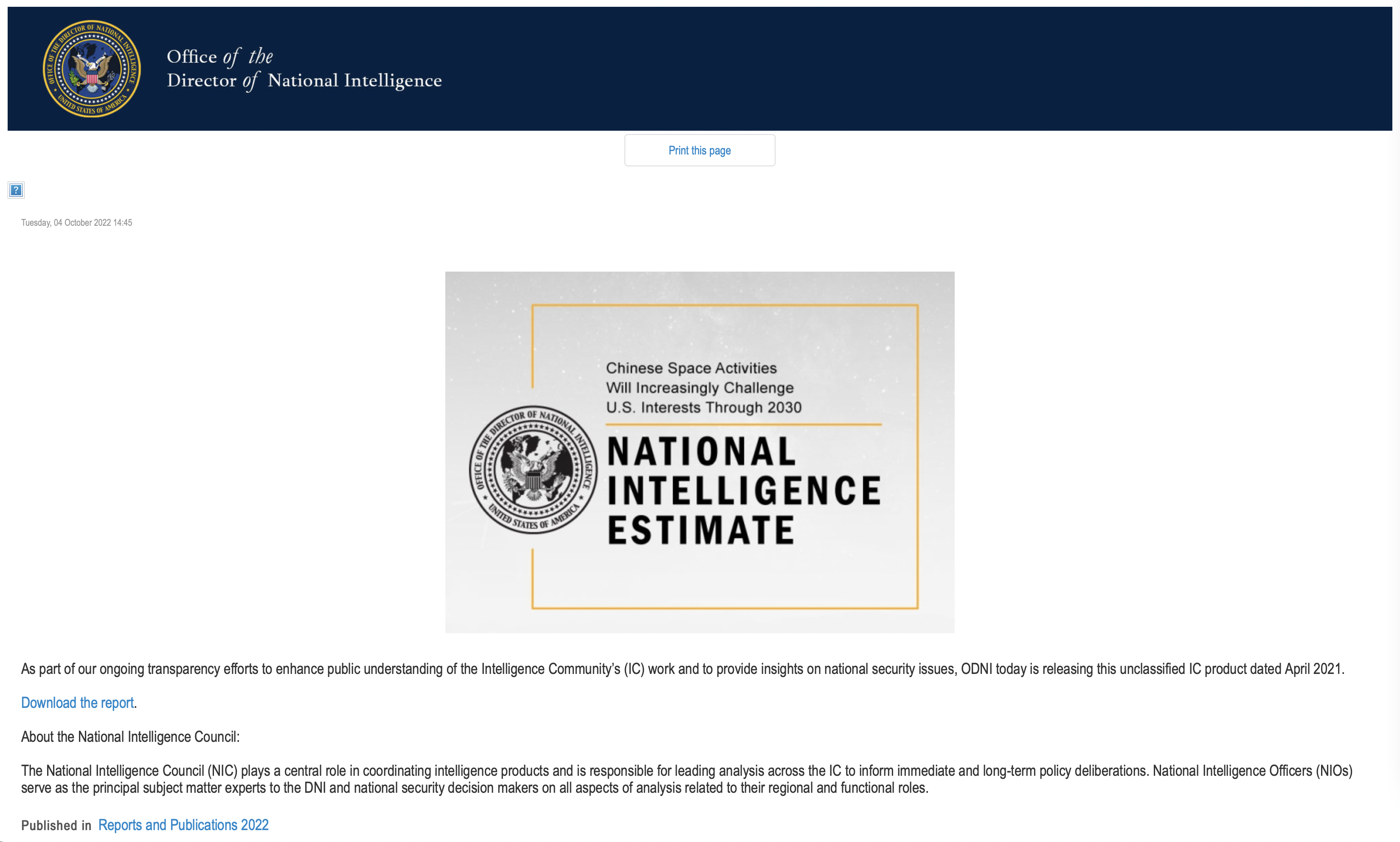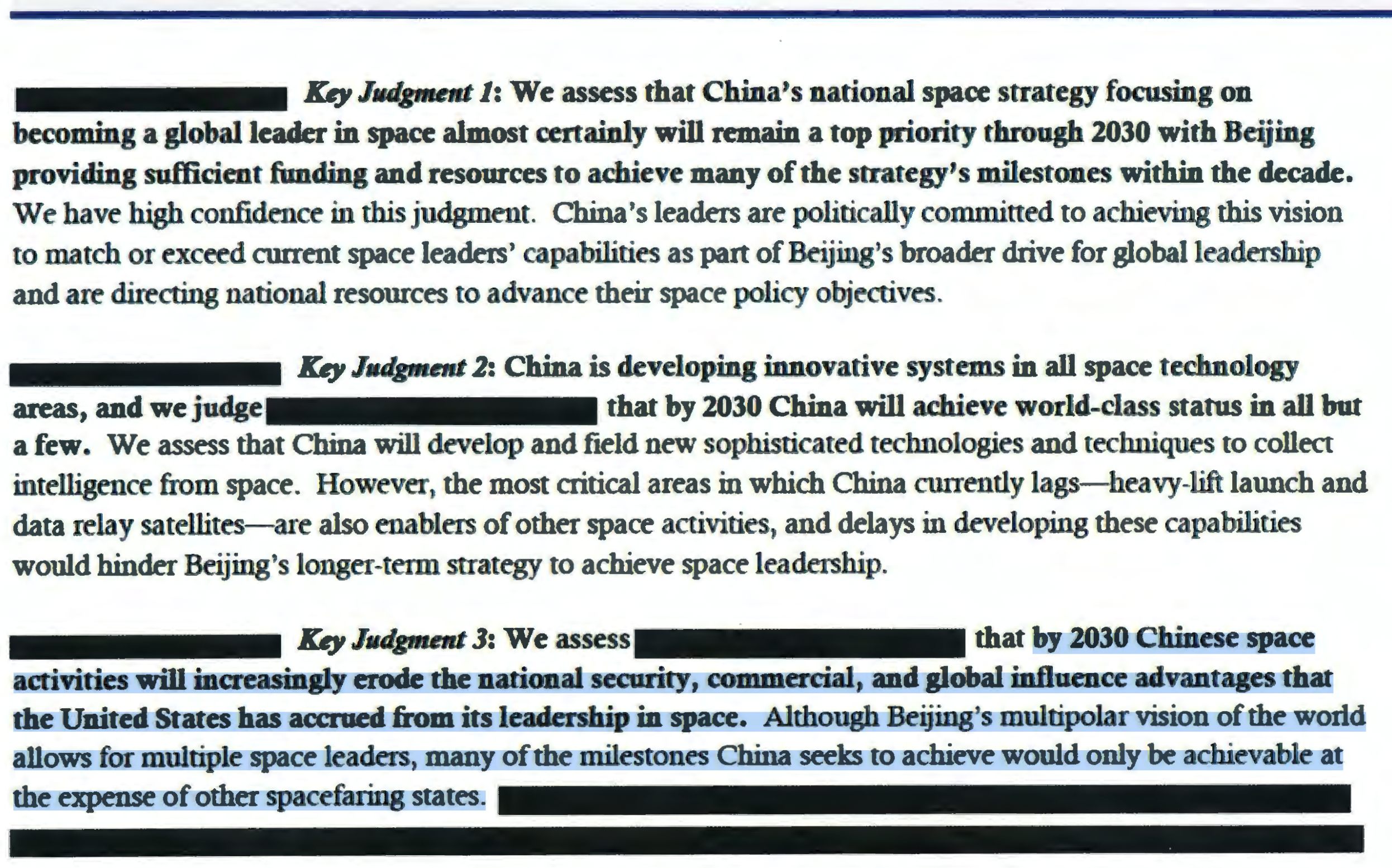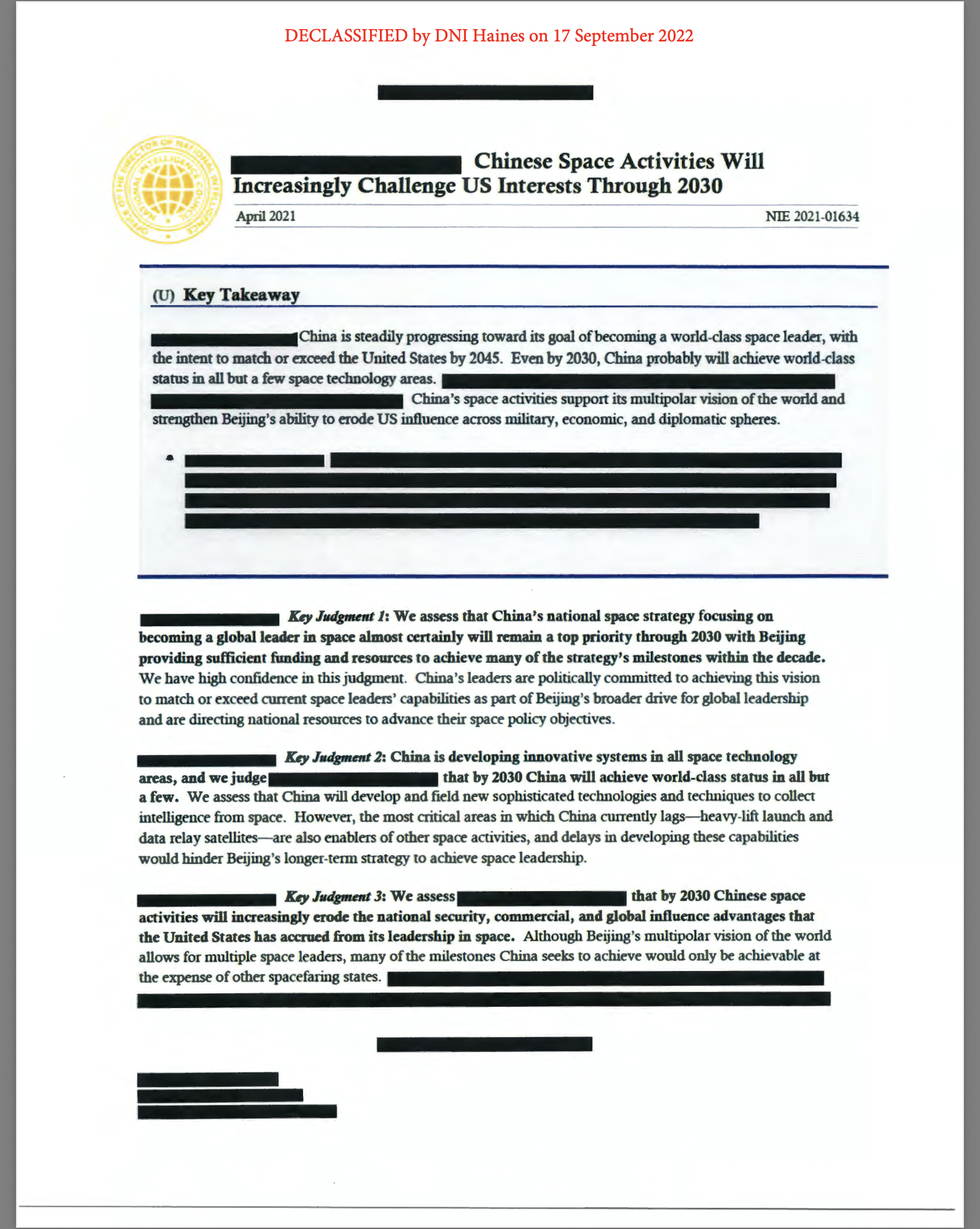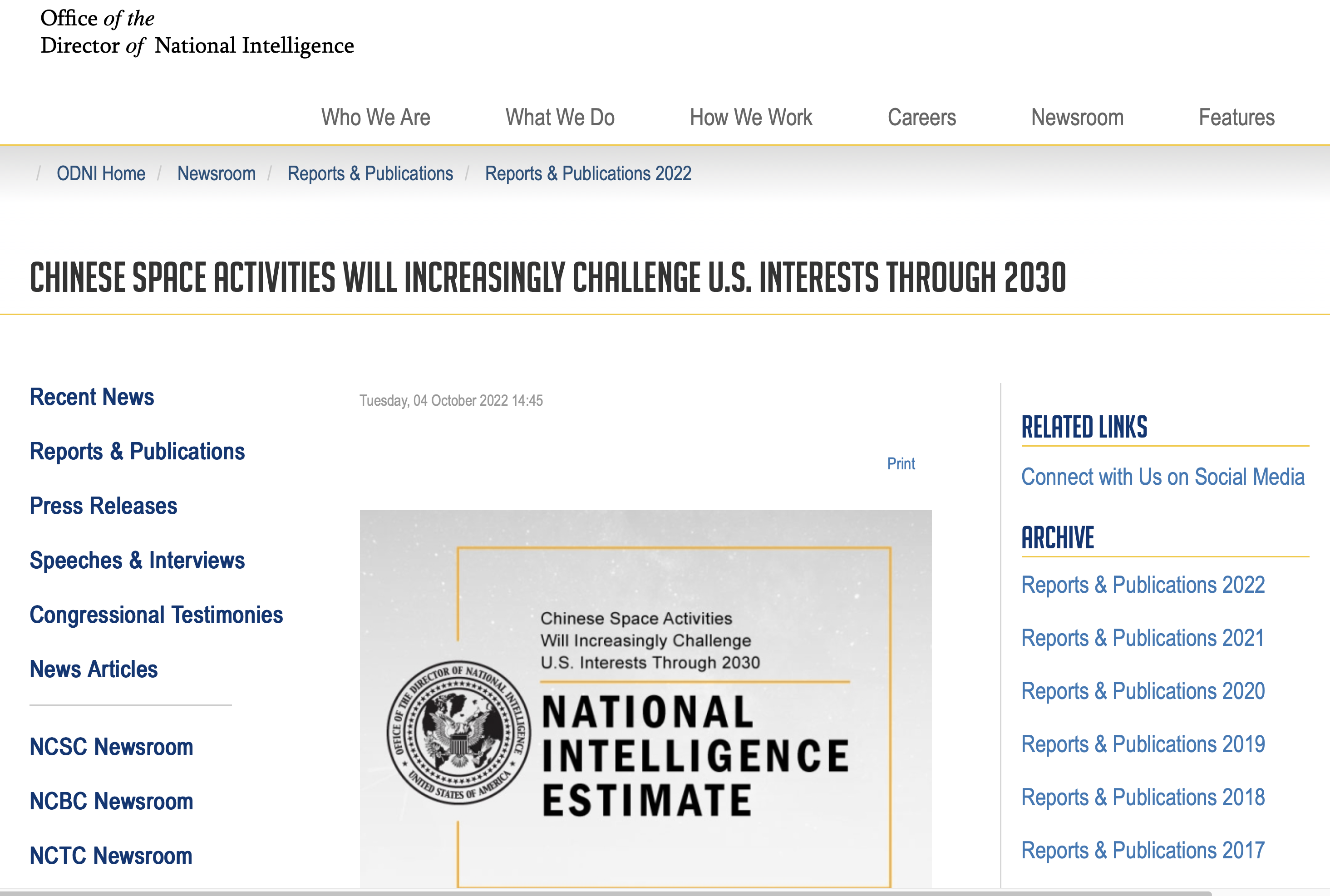Declassified National Intelligence Estimate: “Chinese Space Activities Will Increasingly Challenge U.S. Interests through 2030”
Chinese Space Activities Will Increasingly Challenge U.S. Interests through 2030, National Intelligence Estimate NIE 2021-01634 (Washington, DC: Office of the Director of National Intelligence, April 2021; declassified by DNI Haines 17 September 2022).
[To maximize readability, the below transcription renders redactions of any length as brief ellipses. Click here to download a cached copy of the redacted document itself.]
… Chinese Space Activities Will Increasingly Challenge U.S. Interests through 2030
April 2021
NIE 2021-01634
(U) Key Takeaway
… China is steadily progressing toward its goal of becoming a world-class space leader, with the intent to match or exceed the United States by 2045. Even by 2030, China probably will achieve world-class status in all but a few space technology areas. … China’s space activities support its multipolar vision of the world and strengthen Beijing’s ability to erode US influence across military, economic, and diplomatic spheres. …
… Key Judgment 1: We assess that China’s national space strategy focusing on becoming a global leader in space almost certainly will remain a top priority through 2030 with Beijing providing sufficient funding and resources to achieve many of the strategy’s milestones within the decade. We have high confidence in this judgment. China’s leaders are politically committed to achieving this vision to match or exceed current space leaders’ capabilities as part of Beijing’s broader drive for global leadership and are directing national resources to advance their space policy objectives.
Key Judgment 2: China is developing innovative systems in all space technology areas, and we judge … that by 2030 China will achieve world-class status in all but a few. We assess that China will develop and field new sophisticated technologies and techniques to collect intelligence from space. However, the most critical areas in which China currently lags—heavy-lift launch and data relay satellites—are also enablers of other space activities, and delays in developing these capabilities would hinder Beijing’s longer-term strategy to achieve space leadership.
… Key Judgment 3: We assess that by 2030 Chinese space activities will increasingly erode the national security, commercial, and global influence advantages that the United States has accrued from its leadership in space.Although Beijing’s multipolar vision of the world allows for multiple space leaders, many of the milestones China seeks to achieve would only be achievable at the expense of other spacefaring states. … … …
… we expect China through 2030 will continue to leverage its nonmilitary and commercial space activities to expand its global influence.










































